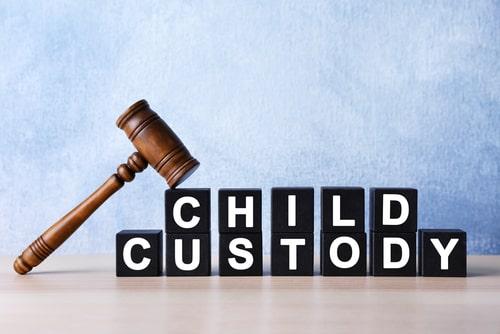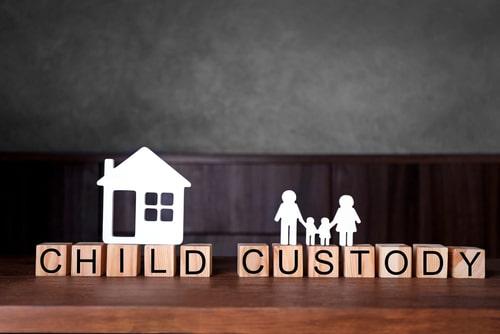Recent Blog Posts
Crafting Thoughtful Virtual Visitation Arrangements
 One of the hardest things about ending a relationship with the other parent of one’s child is the likelihood that, from now on, that child will divide their time between two households. This kind of arrangement can be incredibly difficult for kids and their parents alike.
One of the hardest things about ending a relationship with the other parent of one’s child is the likelihood that, from now on, that child will divide their time between two households. This kind of arrangement can be incredibly difficult for kids and their parents alike.
Logistical challenges can be tough but, above all, it is the reality that a child cannot see each of their parents – and that each parent cannot see their child – each and every day that renders shared child custody and parenting time arrangements so emotionally wrenching. Thankfully, living in the Digital Age has its benefits. And one of those benefits is the opportunity for co-parents and their children to engage in regular virtual visitation.
What Is Virtual Visitation?
Virtual visitation is the process of connecting a parent and their child when their child is not currently residing under their roof. Video chats, email, texts, phone calls, story time apps, and even simultaneously gaming online can connect parents with their kids, but postal mail and other forms of non-electronic connection can also be part of a virtual visitation approach as well.
What Is a Parenting Plan?
 Not so long ago, it was commonplace for one parent to retain sole or primary physical custody of a child, while the child’s other parent received joint legal custody and visitation rights. Nowadays, courts broadly recognize that most children benefit from co-parenting arrangements in which each parent – assuming that they are fit, are eager to act in their child’s best interests, and are capable of healthy co-parenting – benefits from significant parenting time and relatively equal decision-making authority. In order to manage the ins and outs of such arrangements, the courts now insist on the creation of parenting plans in most child custody cases.
Not so long ago, it was commonplace for one parent to retain sole or primary physical custody of a child, while the child’s other parent received joint legal custody and visitation rights. Nowadays, courts broadly recognize that most children benefit from co-parenting arrangements in which each parent – assuming that they are fit, are eager to act in their child’s best interests, and are capable of healthy co-parenting – benefits from significant parenting time and relatively equal decision-making authority. In order to manage the ins and outs of such arrangements, the courts now insist on the creation of parenting plans in most child custody cases.
Setting Legally-Enforceable Expectations
Parenting plans function as court orders that govern the terms of a co-parenting arrangement. A family’s particular parenting plan can outline the rights and responsibilities of each parent, as well as forms of recourse available to them in the event of a breach. While parenting plans may be created – as well as modified – by the mutual consent of a child’s parents, these documents and their modifications must be approved by the court to have legal effect. In the event of a contentious dispute wherein parents cannot agree to the terms of an original plan or modification, the court will make a ruling in the best interests of the affected child.
Why You Need to Clarify Your Divorce-Related Priorities First
 The process of ending a marriage tends to inspire emotional, financial, social, and practical challenges. As a result, it is easy for this period of life to become overwhelming. Oftentimes, individuals who are navigating divorce can get caught up with whatever pressing issue is affecting their experience most profoundly and immediately. Only after time has passed, does it become easier to see that they may have spent a great deal of time missing the forest for the trees in ways that have impacted their future. Therefore, it is a good idea for individuals who are starting to navigate the divorce process to clarify their priorities as soon as they possibly can.
The process of ending a marriage tends to inspire emotional, financial, social, and practical challenges. As a result, it is easy for this period of life to become overwhelming. Oftentimes, individuals who are navigating divorce can get caught up with whatever pressing issue is affecting their experience most profoundly and immediately. Only after time has passed, does it become easier to see that they may have spent a great deal of time missing the forest for the trees in ways that have impacted their future. Therefore, it is a good idea for individuals who are starting to navigate the divorce process to clarify their priorities as soon as they possibly can.
Fighting (Only) the Good Fight
The primary reason why it is so important to set your priorities at the start of the divorce process is that, in doing so, you will be empowered to pick your battles in informed ways. Only you can know whether digging your heels in concerning certain assets, a specific child custody arrangement, detailed parenting plan terms, etc. is worth your time and energy. Once you know which fights are worth fighting, you can direct your efforts accordingly and reserve the remainder of your energy for building the next phase of your life.
How is Child Custody Determined in Illinois?
 Divorce can be complicated, especially when kids are involved. In Illinois, the main priority of child custody laws is the well-being of the child. This post is here to give you more information about how child custody determinations work in Illinois.
Divorce can be complicated, especially when kids are involved. In Illinois, the main priority of child custody laws is the well-being of the child. This post is here to give you more information about how child custody determinations work in Illinois.
Understanding Child Custody in Illinois
Child custody refers to the legal responsibility of caring for a child, including making decisions about their health, education, and daily routine. In Illinois, there are two types of custody arrangements: joint custody, where both parents share custody, and sole custody, where one parent has full custody.
The Illinois Marriage and Dissolution of Marriage Act specifies that the "best interests of the child" principle is taken into consideration for all decisions related to child custody.
Factors Considered in Determining Child Custody
When deciding child custody in Illinois, the court considers various factors. These include the child's preferences (if they are old enough to express them), the mental and physical health of everyone involved, and the parents' ability to work together and make joint decisions.
Can I Get Divorced If I Don't Know Where My Spouse Is?
 In a typical divorce case, the person who initiates the divorce, called the petitioner, serves the divorce petition and summons to the other spouse. The other spouse has the opportunity to participate in the divorce process and have his or her opinion heard regarding property division, child custody, and other divorce issues.
In a typical divorce case, the person who initiates the divorce, called the petitioner, serves the divorce petition and summons to the other spouse. The other spouse has the opportunity to participate in the divorce process and have his or her opinion heard regarding property division, child custody, and other divorce issues.
But what happens if you want to get divorced and you cannot find your spouse? Will you be forced to stay married? Fortunately, Illinois law has provisions addressing this challenging situation. You will still be able to get divorced even if you cannot locate your spouse and serve them divorce paperwork, but doing so may be complicated.
Divorce By Publication in Illinois
The term “serving” refers to the act of providing the divorce petition and summons to the other spouse. In some divorce cases, the petitioner simply hands the other spouse the divorce paperwork. In other cases, divorce paperwork is served by a process server or sheriff. However, in order to serve divorce paperwork to the other spouse, you must know where he or she is.
Can I Change the Child Custody Order in Kane County?
 When married parents divorce or unmarried parents have a child together, they are often subject to a child custody agreement. Life is full of changes, and circumstances may arise in which you need to change your custody order.
When married parents divorce or unmarried parents have a child together, they are often subject to a child custody agreement. Life is full of changes, and circumstances may arise in which you need to change your custody order.
The term “child custody” is still frequently used to describe parenting arrangements for unmarried or divorced parents informally. However, Illinois law does not use this phrase. Instead, your custody agreement will refer to parenting time, which is the amount of time each parent spends with the child, and parental responsibilities, which refers to a parent’s decision-making authority. The rules and procedures for modifying parenting time and parental responsibilities depend on a few different factors. Read on to learn more.
Modifying Parenting Time or Visitation
Countless situations may necessitate an adjustment of the parenting time schedule. A parent may get a new job, relocate to a new residence, or go back to school. Sometimes, the child's needs change and the parenting time schedule must be modified to meet these needs.
What Happens During an Order of Protection Hearing?
 Domestic violence continues to be a very real issue in Kane County and the rest of Illinois. Victims of abuse, harassment, stalking, and domestic violence include people of all races, income levels, genders, and backgrounds.
Domestic violence continues to be a very real issue in Kane County and the rest of Illinois. Victims of abuse, harassment, stalking, and domestic violence include people of all races, income levels, genders, and backgrounds.
If you have been abused by a spouse, family member, or household member, an order of protection can provide legal protection against further abuse. Orders of protection, called restraining orders or protective orders in other states, prohibit an abuser from contacting the victim, coming to the victim’s home, school, or workplace, and contain other provisions, such as giving the petitioner custody of any children.
In this blog, we will discuss when a hearing is required to obtain an order of protection and what occurs during such a hearing.
Emergency Order of Protection
Illinois courts offer protection orders on an emergency basis for people who are at risk of abuse or violence. There are two main types of emergency orders of protection. If the person you are seeking protection from has already been arrested or charged with domestic battery, assault, or a related offense, you will want to get a criminal order of protection. If the person has not yet been arrested or charged with a criminal offense involving you, you will be requesting a civil order of protection.
Undisclosed Income and Hidden Assets in Your Geneva Divorce Case
 Financial disclosure is an essential part of the divorce process. Whether spouses are able to work out a divorce settlement without the court’s involvement, or the case goes all the way to trial, no decisions can be made without complete financial information.
Financial disclosure is an essential part of the divorce process. Whether spouses are able to work out a divorce settlement without the court’s involvement, or the case goes all the way to trial, no decisions can be made without complete financial information.
However, some spouses fail to disclose truthful financial data during the divorce. They lie about their income or the sources of income, undervalue assets such as business interests, or fail to disclose property or funds.
If you are getting divorced, make sure you are truthful on your financial disclosure forms. Financial fraud can have significant legal consequences. Additionally, look for warning signs that could mean your spouse is hiding assets or failing to disclose income during the divorce. If your spouse is not truthful about financial matters, it can significantly impact the divorce outcome.
Is Getting a Protection Order Worth It?
 If you are in an abusive relationship, you may wonder what getting a protection order can do for you. Many people are unsure of whether court intervention is the right choice for their situation. They worry that securing an order of protection will make the abuser even more angry or otherwise escalate the situation. They do not understand what an order of protection can do for them.
If you are in an abusive relationship, you may wonder what getting a protection order can do for you. Many people are unsure of whether court intervention is the right choice for their situation. They worry that securing an order of protection will make the abuser even more angry or otherwise escalate the situation. They do not understand what an order of protection can do for them.
In this blog, we will discuss the legal and practical benefits of securing an order of protection against an abusive partner. For personalized guidance regarding your specific situation, reach out to a Kane County family law attorney.
Emergency Order of Protection
In Illinois, an Emergency Protection Order (EOP) is a court order that is often used to protect somebody from abuse, harassment, or threats of violence. Once an EOP is filed, it goes into effect immediately. Each protection order is tailored to the petitioner’s unique situation. However, EOPs commonly restrict where a person can go and who they can contact. For example, the protection order may prohibit your spouse or partner from visiting your workplace or school. An EOP may even be used to temporarily evict somebody from a shared residence. You may be able to use an EOP to force your spouse or partner to move out of your shared home - even if the home is in his or her name. This can be a very valuable tool for abuse victims that gives them time to gather their belongings and relocate to a safe place.
What Does “First Refusal for Childcare” Mean in an Illinois Parenting Plan?
 If you are getting divorced and you share children with your soon-to-be ex, you will be expected to fill out a parenting plan and submit it to the court for approval. The parenting plan is the document that describes how you and the other parent will raise your child as divorced co-parents.
If you are getting divorced and you share children with your soon-to-be ex, you will be expected to fill out a parenting plan and submit it to the court for approval. The parenting plan is the document that describes how you and the other parent will raise your child as divorced co-parents.
The parenting plan is extensive, and parents will need to answer questions about how significant decisions will be made, who will take care of the children on what days, how children will be transported between the two homes, and much more. One parenting plan element that many people have questions about is the right of first refusal. In this blog, we will discuss the right of first refusal and how you can use this important right to benefit your co-parenting relationship as well as your relationship with your child.
The Right of First Refusal
When parents fill out their parenting plan, they will need to determine a parenting time schedule. Parenting time is when a parent supervises a child and provides for the child's needs. You may decide that one parent will have the child during the week while the other parent has the child during the weekend. Or, you may alternate weeks. Every parenting time schedule is slightly different because the parents and the child's needs are different.


 630-844-8781
630-844-8781



